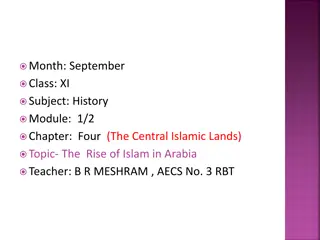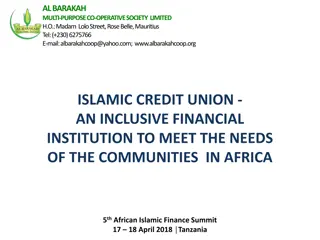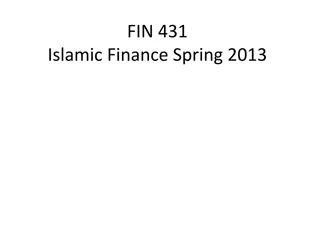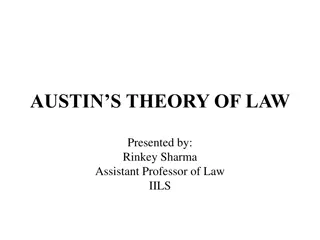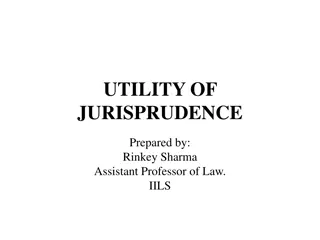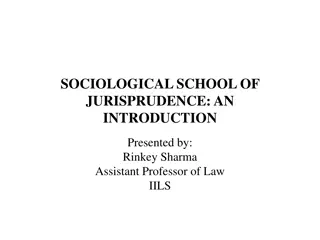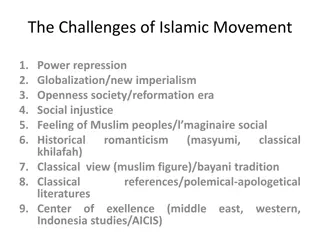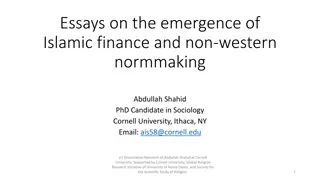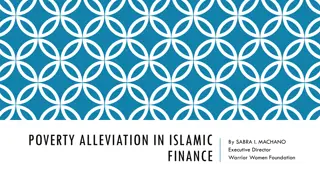Understanding Fiqh: Schools, Sources, and Concepts in Islamic Jurisprudence
Fiqh, an Arabic term meaning "deep understanding," plays a crucial role in interpreting divine law (Shariah) in Islam. This article delves into the concept of Fiqh, the emergence of Fiqh schools, sources of Fiqh according to Imam Abu Haneefa, and different types of Fiqh. By exploring these aspects, readers can gain insight into the principles guiding Islamic jurisprudence.
Download Presentation

Please find below an Image/Link to download the presentation.
The content on the website is provided AS IS for your information and personal use only. It may not be sold, licensed, or shared on other websites without obtaining consent from the author. Download presentation by click this link. If you encounter any issues during the download, it is possible that the publisher has removed the file from their server.
E N D
Presentation Transcript
Fiqh Schools Concept of Fiqh Causes behind the emergence of fiqh Sources of fiqh Types of Fiqh Difference between shari ah and Fiqh Verses about Fiqh
Objectives: To be aware of the other types of Fiqh. To understand the concept of it. To be informed about the emergence. 2
WHAT IS FIQH? The word fiqh is an Arabic term meaning "deep understanding"or "full comprehension". Strictly speaking, In Islamic terms it means to understand the orders of Allah through authentic sources including The Holy Quran, the sayings of Prophet and great Imams of Fiqh. Faqih means the person who is master in the discipline of fiqh. 3
Concept of FIQH Conceptually, the human attempt to understand divine law ( Shariah ). Whereas shariah is immutable and infallible, Fiqh is fallible and changeable. Fiqh is distinguished from usul al fiqh, the methods of legal interpretation and analysis. Fiqh is the product of application of usul al fiqh, the total product of human understanding the divine will. A hukm is a particular ruling in a given case. ADD A FOOTER 4
The Emergence of Fiqh Schools The Iraqi School -This school was established because a greater group of companions immigrated to Iraq more than to any other of the new territories ; more than 300 of the companions went to Iraq in addition to the fact that the Caliphate moved there after madina and al- Sham (Syria) A Fiqh (jurisprudence) school means a style and methodology followed by an Islamic jurist (Faqih): others come and adopt this style and methodology and follow them until they become known by this style and methodology. The most prominent among these schools were: The Madinah School -was the first fiqh school, and was the capital city of islam and the abode of the Prophet and his companions. 5
THE SOURCES OF FIQH According to Imam Abu Haneefa, the sources of Fiqh are: The Qur an, Sunnah of the Prophet, Ijma (consensus) of some, not necessarily all of the Companions, Qiyas (deduction by analogy to similar cases which had been decided on the basis of the first three principles) and, Istihsan (creative juridical opinion based on sound principles). 6
Types of Fiqh Its types: The scholars divide fiqh into seven types and they are: al-ibaadaat (worship), those rulings connected to worshipping Allaah such as prayerand fasting al-uqoobaat (punishments), the rulings pertaining to prescribed punishments, retribution and reprimand, chastisement. al-huqooq al-duwaliyyah (state rights), rules that define the relationship between an Islamic state with other states al-aadaab (manners), rulings pertaining to manners, character, etiquette. al-ahwaal al-shakhsiyyah (personal affairs) such as the rulings connected to the family, marriage and divorce al-mu'aamalaat (dealings), those rulings that define and arrange relationships between people such as trade, contracts and so on. al-ahkaam al-sultaaniyyah (rulership and governance), those rulings that arrange and organize the relationship between the ruler and the ruled. 7
DIFFERENCE BETWEEN SHARIAH AND FIQH Fiqh has been used in the Qur n in this meaning: They have hearts wherewith they understand not. SHARIAH Shari ah is the standard of how a Muslim is to live his/her life from ibadat (worship) to m aamalaat (business transactions and dealings between Muslims) as well as penal code (crime and punishment) and family law (inheritance, marriage and divorce). Shari ah is according to the Qur an, which is considered sacred, and the sunnah of Rasool Allah (SAS) and cannot be altered. FIQH Fiqh is the understanding of the Shari ah. When a dispute arises, ijmaa (gathering) takes place to determine the best course of action (consensus) according to the Shari ah. 8
VERSES ABOUT FIQH -referring to the disbelievers failure to accept God s revelation and appreciate His signs. We have assigned to hell many jinn and humans: they have hearts but they do not understand (la yafqahuna) with them; they have eyes but they do not see with them; and they have ears but they do not hear with them. They are like cattle rather, they are further astray. Those are the heedless. (7.179) That is because they (the hypocrites) believed then disbelieved; therefore a seal has been set on their hearts, so they do not understand (la yafqahuna). (63.3) You (the believers) cause greater fear in their (the disbelievers) hearts than Allah. This is because they are a people who do not understand (la yafqahuna). (59.13) 10
BIG IMAGE 11









